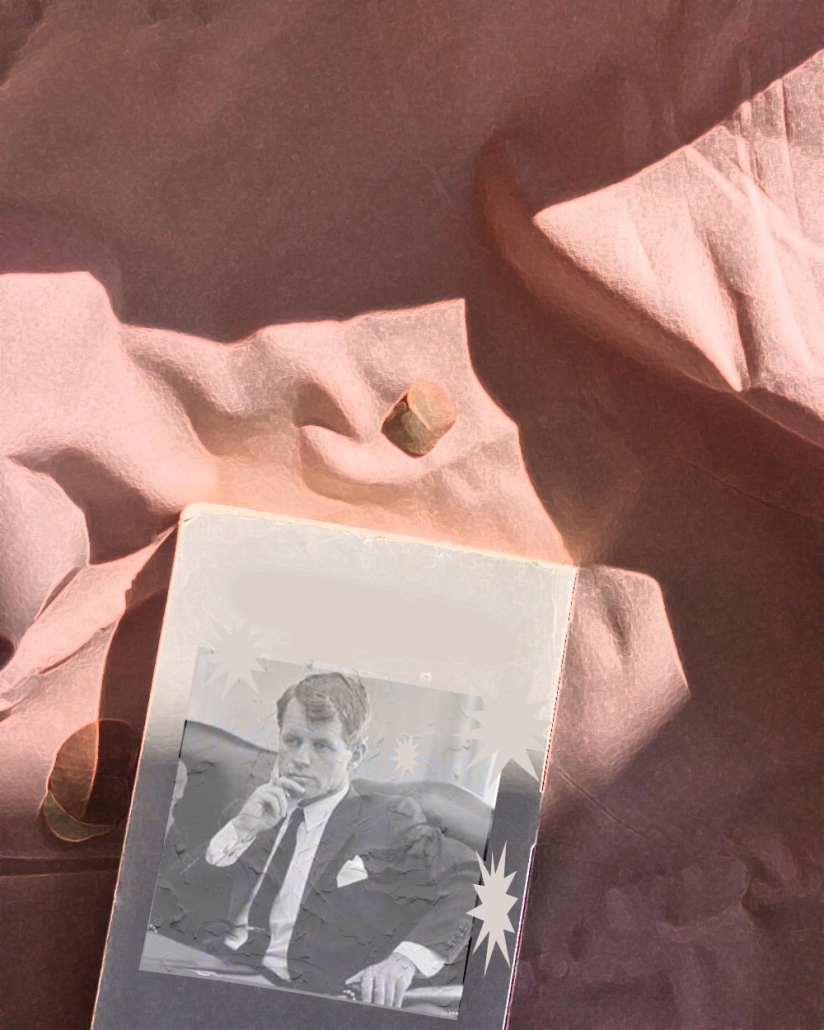Politics and Prose: Larry Tye embraces the contradictions of a liberal icon

Americans would benefit greatly from reading more about Bobby Kennedy.
That’s Bobby Kennedy — B-O-B-B-Y (of course also known by his legal name, Robert F. Kennedy) — not his brother, President John F. Kennedy, not his other brother, Sen. Ted Kennedy, and not his grandson, Congressman Joe Kennedy III. I am talking about Bobby Kennedy, the former U.S. Attorney General, U.S. Senator and slain Presidential candidate; and perhaps no book offers a more objective, thoughtful and inspiring survey of his life and legacy than Larry Tye’s book “Bobby Kennedy: The Making of a Liberal Icon.”
Tye’s book is the product of more than 400 interviews conducted over the course of four years, including interviews with some of the most trusted members of Kennedy’s inner-circle, such as his wife, Ethel Kennedy, and his aide and closest friend, John Seigenthaler. As you would expect, the biography tells the story of its subject, Kennedy, but Tye’s work differs from the abundance of Bobby Kennedy-centered biographies and literature in two key respects.
The first way Tye separates his biography from previous Kennedy biographies is in his attention to the earliest, sometimes overlooked, chapters of Kennedy’s life. Kennedy’s youth, experiences as counsel to the infamous Sen. Joseph McCarthy, Chief Counsel to the McClellan Committee and campaign manager for John F. Kennedy are thoroughly fleshed out, with Tye taking his time to contextualize each phase of Kennedy’s life in both the icon’s narrative and intellectual moral arc. In fact, nearly one third of the book passes before readers see Kennedy assume the most powerful position of his life, the U.S. Attorney General.
The second, and also most important, respect in which Tye’s biography differs from the abundance of other biographies printed over the decades since Kennedy’s assassination in 1968 is the book’s treatment of Kennedy’s life. As the New York Times former chief book critic, Michiko Kakutani, pointed out, a “reductive” dichotomy between “good Bobby” and “bad Bobby” has previously been employed by writers. Such was the case in Ronald Steel’s disparaging 2000 biography, “In Love with Night: The American Romance with Bobby Kennedy,” which Kakutani and Tye both allude to, and such has been the case in countless other works, a fact that is also tacitly and explicitly engaged with by Tye.
But Tye, for his part, doesn’t box his book or his reader into making an absolute choice between “good Bobby” and “bad Bobby,” and this is where “The Making of a Liberal Icon” shines brightest.
The less savory, even shameful elements of Kennedy’s life and personality are not sugarcoated: he aided and maintained a relationship with one of the most despicable men in American political history (McCarthy), earned a reputation as a ruthless political operative as his brother’s campaign manager, advocated for hawkish, unnecessarily violent policies toward Latin America and lived a life of almost unimaginable privilege that left him out of touch with America’s poor and marginalized.
Tye makes it clear that the list does not end there — not in its length or in its degree of immorality — but he also reassures that the list doesn’t define Bobby Kennedy in his entirety. Kennedy resigned from McCarthy’s committee and wrote the minority report that censured the senator. Kennedy took responsibility for his brother’s policies in Latin America and Southeast Asia and ran as a progressive in 1968 on the promise of ending the war in Vietnam. Finally, whereas Kennedy’s life could not have been more far-removed from the challenges of America’s downtrodden, he found a way, through sustained action and compassion, to become one of America’s greatest champions for civil rights, minority-empowerment and the poor.
This is not to suggest that the merits of the latter half of Kennedy’s career outweigh the failures of the first half. It is also not to suggest that Kennedy’s moral arc is that plainly linear. What it is supposed to communicate, however, are the contradictions of Kennedy’s life; his evolution, his changes and his flawed humanity.
It is in capturing this humanity where “The Making of a Liberal Icon,” achieves the most present-day salience. During a time where some of the most prominent leaders of the political right and left have achieved seemingly God-like statuses, Tye’s portrait of Kennedy reminds readers of the nuanced, almost disappointingly complex, reality behind our political icons.
Stuart Carson is a senior writing about political literature. He is also an associate managing editor of the Daily Trojan. His column, “Politics and Prose,” runs every other Monday.

